Happy Friday! A 12-year-old Little League player is missing his team’s first state tournament game after he was suspended for a bat flip following a two-run homer. We’d like to formally offer Marco a spot on the Dis-Pitchers softball team—we could really, really use his power.
And bat flips are encouraged.
Quick Hits: Today’s Top Stories
- Thai Air Force jets struck military targets in Cambodia on Thursday, in response to rocket attacks that Thai officials claimed had been launched by Cambodia and killed at least 11 civilians. Cambodian Prime Minister Hun Manet, meanwhile, claimed that his country’s military was responding to aggression by Thai forces. Cambodian officials also claimed Thursday that the Thai strikes damaged the Preah Vihear Temple, a UNESCO World Heritage Site. The attacks come after months of escalating tensions between the Southeast Asian neighbors, culminating in the countries’ recall of their respective ambassadors on Wednesday, following Thai accusations that Cambodia had been laying landmines along their shared border.
- French President Emmanuel Macron announced Thursday that his country would recognize a Palestinian state in September, making it the first member of both the Group of Seven and the United Nations Security Council to do so. In a post on X, Macron said the decision was consistent with France’s “historic commitment to a just and lasting peace in the Middle East.” He also reiterated calls for an immediate ceasefire between Hamas and Israel, ramped up humanitarian aid to Gaza, and the “demilitarization” of Hamas. Meanwhile, Secretary of State Marco Rubio said the U.S. “strongly rejects” Macron’s announcement, describing it as “a slap in the face to the victims of October 7.”
- Israel and the U.S. on Thursday recalled their negotiating teams from Doha, Qatar, following a ceasefire proposal by Hamas officials that White House special envoy Steve Witkoff dismissed as “selfish” and in bad faith. Israeli officials said that there were issues in the proposed deal that required further deliberation. “We appreciate the efforts of mediators Qatar and Egypt and the efforts of envoy Witkoff to bring about a breakthrough in the talks,” Israeli Prime Minister Benjamin Netanyahu’s office said in a statement.
- Following a months-long review process, the Federal Communications Commission voted 2-1 on Thursday to approve a proposed $8 billion merger between Skydance Media and Paramount, the parent company of CBS. The two entities reportedly made a number of concessions to secure approval of the deal, including promises to “root out” media bias and eliminate diversity, equity, and inclusion practices. Earlier this month, Paramount settled a lawsuit with President Donald Trump, paying him $16 million after Trump accused CBS News of deceptively editing an interview with then-Vice President Kamala Harris last fall. “Americans no longer trust the legacy national news media to report fully, accurately, and fairly,” FCC Chairman Brendan Carr said in a statement upon the deal’s approval. “It is time for a change. That is why I welcome Skydance’s commitment to make significant changes at the once storied CBS broadcast network.” Anna Gomez, the lone Democratic FCC commissioner, voted against approving the deal, arguing the “once-independent FCC used its vast power to pressure Paramount to broker a private legal settlement and further erode press freedom.”
- Health insurance giant UnitedHealth confirmed in a securities filing on Thursday that it is complying with an investigation by the Department of Justice into its Medicare billing practices. The company said earlier this year that it was unaware of any probe into the program, but a Wall Street Journal report on Wednesday revealed that UnitedHealth was being investigated by the DOJ’s healthcare-fraud unit for allegedly encouraging doctors and nurses to seek diagnoses with large reimbursement payments. In the filing, the company said it “has full confidence in its practices and is committed to working cooperatively with the Department throughout this process.”
- Michael Whatley, the chair of the Republican National Committee, plans to run for Senate in North Carolina in 2026, multiple news outlets reported on Thursday. The news followed a decision by Lara Trump, President Donald Trump’s daughter-in-law, not to run for the seat being vacated by Republican Sen. Thom Tillis, and the president reportedly offered Whatley, who ran North Carolina’s state GOP before assuming his current post as RNC chair, his support should he enter the race. Axios reported earlier this week that Roy Cooper, a Democrat and the former governor of North Carolina, is planning to announce a bid for the Senate seat in the coming days.
- Democratic Wisconsin Gov. Tony Evers announced Thursday that he would not seek a third term. In a video posted to X, the 73-year-old governor said that he decided not to run in order to spend more time with his family. Multiple Democratic candidates are expected to throw their hats into the ring; Wisconsin is one of the five states with a Democratic governor that will hold a gubernatorial race in 2026 and voted for President Donald Trump in the last election.
Russian Interference Redux
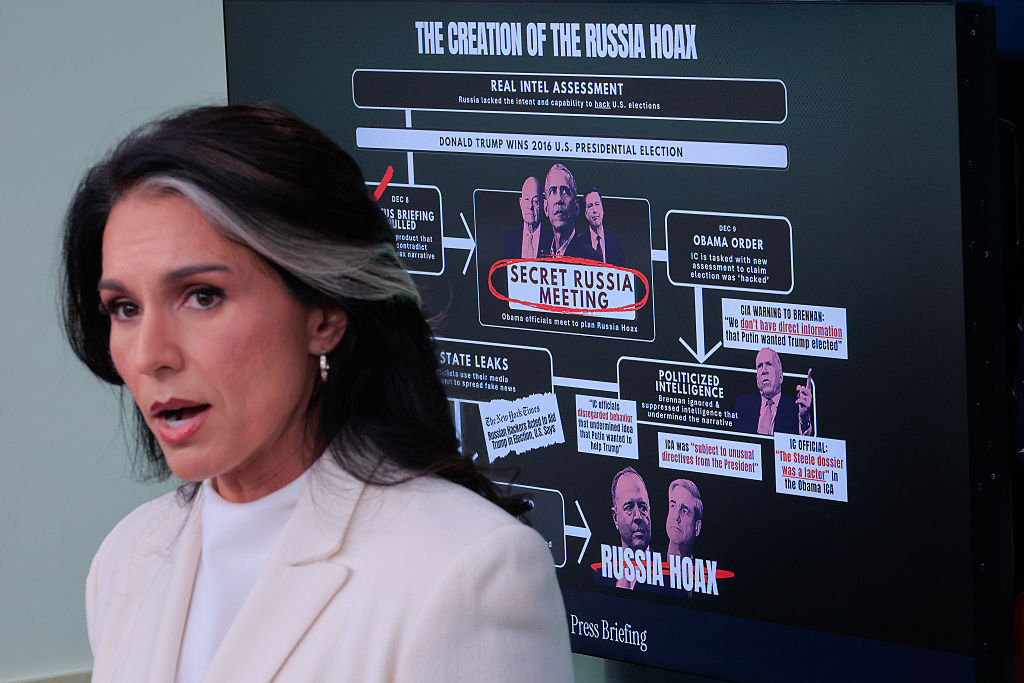
A lot has happened since 2016. The popular streaming app Vine met an untimely death—and a possible revival. Skinny jeans went out of—and apparently came back into—style. And the Cubs have yet to win another World Series (Editor’s Note: Give it three months). But through it all, there has been one constant: Donald Trump’s obsession with allegations that Russia interfered in the presidential election on his behalf.
“Obama himself manufactured the Russia, Russia, Russia HOAX,” Trump wrote on social media this week. “Crooked Hillary, Sleepy Joe, and numerous others participated in this, THE CRIME OF THE CENTURY!. Irrefutable EVIDENCE. A major threat to our Country!!!”
After more than eight years and multiple investigations, the Trump administration says it has unearthed new evidence in the “Russiagate” saga. On Wednesday, Director of National Intelligence Tulsi Gabbard released a declassified 2017 House Intelligence Committee report that she claimed, together with a tranche of documents published last week, revealed a “treasonous plot” by former President Barack Obama and his national security team to “manufacture intelligence” in an effort to undermine Trump. Hours after Gabbard’s announcement, the Justice Department announced a new task force to investigate the Obama administration’s “weaponization of the intelligence community” to weigh “potential next legal steps.”
But press releases alone do not a criminal case make. And despite Gabbard’s explosive claims, her recent intelligence contributions have shed very little new light on allegations of Russia’s interference during the 2016 election.
During a White House briefing on Wednesday, Gabbard contended that Obama and his top national security aides “directed the creation of an intelligence community assessment that they knew was false. They knew it would promote this contrived narrative that Russia interfered in the 2016 election to help President Trump win, selling it to the American people as though it were true. It wasn’t.”
Gabbard’s allegations center on the outgoing Obama administration’s investigation into Russian interference before and after Trump’s November 2016 election. In a 2017 report by the CIA, FBI, and National Security Agency—published two weeks before Trump’s inauguration—officials assessed that Russian President Vladimir Putin “developed a clear preference” for Trump and acted upon it by attempting to sabotage the campaign of former Secretary of State Hillary Clinton through cyber operations. The agencies noted that they had “high confidence” in their assessment, which was produced in an unusually short time period.
Gabbard now claims the findings were fabricated on Obama’s orders. DNI’s smoking gun? A 2017 review by the Republican-led House Intelligence Committee, which cast doubt on the Obama administration’s conclusion that Moscow tried to influence the outcome of the election one way or another, as opposed to sowing general discord. The lawmakers concluded that the Kremlin viewed a Clinton presidency as inevitable, even going so far as to hold back compromising information on the Democratic nominee with plans to leak it after her inauguration.
The authors went on to argue that the information Russia ultimately leaked about Clinton—which included the email correspondence of her campaign chair—was “far less damaging” to her candidacy than what was withheld. According to the report, Moscow had unearthed and sat on emails between Democratic officials detailing Clinton’s “intensified psychoemotional problems” and daily use of “heavy tranquilizers” on the campaign trail. Her team also allegedly held covert meetings in which State Department officials offered American religious organizations, in exchange for their support, “significant increases in financing” from the department.
But did the Obama administration’s 2017 report rise to the level of fabrication? The House committee didn’t seem to think so, despite Gabbard’s summary of its findings. The lawmakers faulted the Obama team for rushing the report and relying on shaky intelligence, but their recommendations largely focused on improving future assessments. And they certainly didn’t make the case for criminal prosecution.
Nor did the 8-year-old report’s release bring much new information to light. The House’s conclusions closely aligned with CIA Director John Ratcliffe’s June “lessons-learned review,” which criticized the Obama team over its procedural errors and crunched timeline. Likewise, in his 2023 report on the probe into alleged Russian interference, special counsel John Durham detailed political biases and unprofessional conduct on the part of Obama’s intelligence community. But, he noted, “not every injustice or transgression amounts to a criminal offense.”
The Trump administration’s new case also conflates allegations that Russia attempted to rig the 2016 election by hacking voting machines with claims that it sought to influence its outcome through other means, like online influence campaigns and phishing operations to obtain damaging information on Clinton.
In a press release last Friday, Gabbard’s office highlighted an excerpt from an email in the lead-up to the election in which an intelligence official said Russia is “probably not trying … to influence the election by using cyber means.” Taken alone, the private correspondence could indicate that the intelligence community later doctored its public report alleging Russian cyber interference. But the full message, included in the documents released last week, tells a different story: “Russia probably is not trying to going to be able to? [sic] influence the election by using cyber means to manipulate computer-enabled election infrastructure. Russia probably is using cyber means primarily to influence the election by stealing campaign party data and leaking select items, and it is also using public propaganda.”
That conclusion squares with public statements by Obama and subsequent probes, including a 2020 review by a bipartisan Senate Intelligence Committee. In a nearly 1,000-page report—the product of a three-year investigation into Russian election interference—the committee said that, while there was no evidence that Moscow had successfully altered vote counts, it had conducted extensive influence and hacking operations ahead of the election. “We found irrefutable evidence of Russian meddling,” Secretary of State Marco Rubio, then-chairman of the Senate committee, said at the time.
Flash forward five years, and Republican lawmakers are now pushing for yet another probe into the government’s handling of Russiagate. Democrats, meanwhile, continue to deny any wrongdoing—professional or otherwise—on the part of Obama and his team.
“You’ve got two narratives about what Russia was doing in 2016. You’ve got the Democratic narrative, you’ve got the Republican narrative. They’re both incomplete,” our colleague Michael Warren said on today’s episode of The Dispatch Podcast. “It just feels like a rehash of these arguments that we’ve been having, where both sides are really kind of yelling past each other and not really interested in finding out any kind of truth.”
Today’s Must-Read
In an anti-institutional era, does any institution face more dangerous attacks than our Constitution’s judicial branch? Today it faces outlandish political attacks from both the right and the left. President Donald Trump and other senior officials launch petulant insults against judges who rule against his administration’s policies. Democratic senators make reckless threats that Supreme Court justices should “pay the price” for their decisions and assert that the court itself should be “restructured,” because its decisions do not please them. … It is an unsettling moment—but not an entirely unprecedented one. The judicial branch is supposed to be insulated from political pressure, but our history has witnessed many other moments when judges and courts have faced withering political attacks despite their constitutional protection, or perhaps even because of it.
Toeing the Company Line
The Containment Dome
An Epstein spin debacle.
‘You Take Five Seats, You Change Everything in This Town’
To harness the power of unaffiliated voters, the Independent Center looks down ballot.
There’s More Work to Do on Iran
The U.S. and Israeli strikes inflicted significant—but not permanent—damage.
Japan’s Art of the Trade Deal
‘And, refreshingly, no economic holocaust.’
Worth Your Time
- In a harrowing feature piece for the Wall Street Journal, Matthew Luxmoore reported on the horrific conditions facing the Russian soldiers forced or enticed to the frontlines of the ongoing war in Ukraine. “Mikhail Simdyankin was taking the bus to work in St. Petersburg last summer when he passed army recruitment billboards promising generous payouts to those willing to do ‘real man’s work,’” Luxmoore wrote. “Simdyankin was among the hundreds of thousands of Russians who have been lured into the military—often drawn by propaganda, offers of lucrative pay and, for some, a chance to avoid prison time. They regularly find themselves dispatched hastily to the front, where Russia’s army fights with brutal Soviet-style tactics that pay for small gains with a colossal loss in lives. Russia ramped up its assault this summer, and this month President Trump announced a deal to send weapons and air defenses to Ukraine. Western officials estimate that Russia has suffered more than 1 million casualties in Ukraine, with at least 250,000 soldiers dead. Some 400,000 Ukrainians have been wounded or killed. Simdyankin survived against the odds. Most of the 100 soldiers in his assault group were severely injured or killed in less than a month. His mission to the factory turned into a harrowing sprint—but what he saw when he reached the garrison left him even more shaken. ‘Our commanders saw us as expendable,’ said Simdyankin, who is now being held at a prisoner-of-war camp. ‘They didn’t care whether or not we survived.’”
Presented Without Comment
Mediaite: Tulsi Gabbard Argues Obama Is Guilty of Treason Because ‘There Has to Be Peaceful Transition of Power’
On The Charlie Kirk Show, Kirk asked Gabbard to back up her “fighting words.”
“Can you make the case– can you present the arguments– the best bill you can with unclassified information and public information what makes you believe that this reaches that sort of threshold?” he asked.
Gabbard’s smoking gun? Obama — she claimed — disrupted the peaceful transfer of power.
“When we look at our Democratic Republic, Charlie, our system is built on the foundation of the American people casting their votes for who they want to be in office, to be our president and commander-in-chief.” said Gabbard. “In this system, there has to be a peaceful transfer of power.”
Also Presented Without Comment
Politico: ‘They’re Shutting Me Up’: George Santos Has a Few Final Thoughts Before Heading to Prison
In his interview with POLITICO, Santos expressed contempt for the one-time New York Republican colleagues who turned their backs on him, including Reps. Nick LaLota and Mike Lawler. He also slammed Attorney General Pam Bondi as part of a “weaponized” Justice Department, though he won’t say a bad word against her boss, the president.
He discussed his cosmetic procedures with the “Sources Say” podcast, including his lapsed use of “fillers” to smooth wrinkles while behind bars, and saw the disclosures get the tabloid treatment in the New York Post.
He told POLITICO that his song of the moment is Frank Sinatra’s “My Way,” then went on X to post a clip of a particularly relevant verse: “And now, the end is near. And so I face the final curtain.”
In the Zeitgeist
Pro-wrestling star Hulk Hogan, who helped make professional wrestling into the massive industry it is today, died Thursday at the age of 71. Here’s a highlight reel of some of Hogan’s most legendary moments.
Let Us Know
What do you make of the Trump administration’s Russiagate revival?


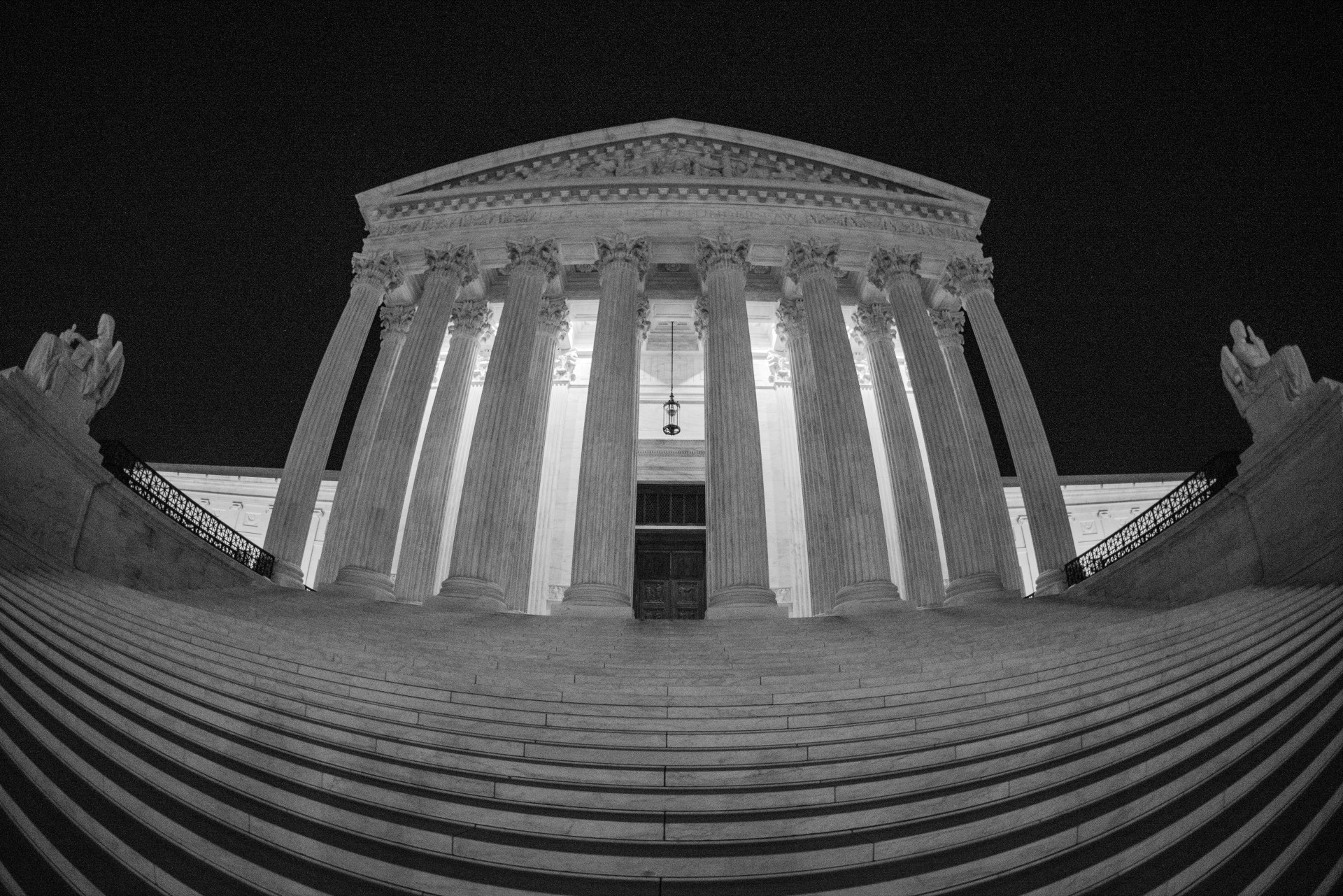
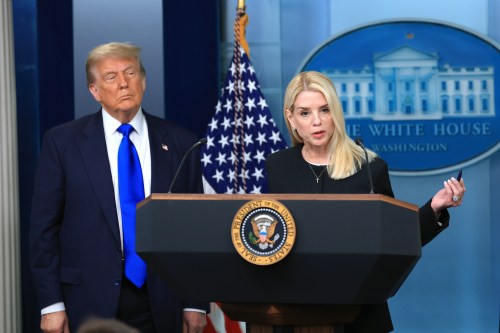
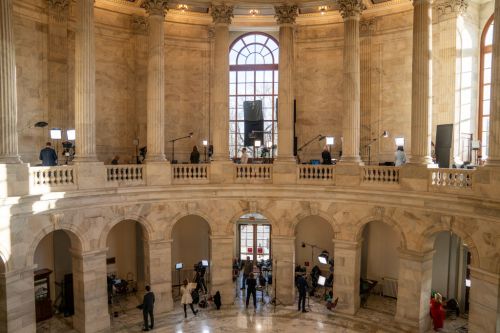
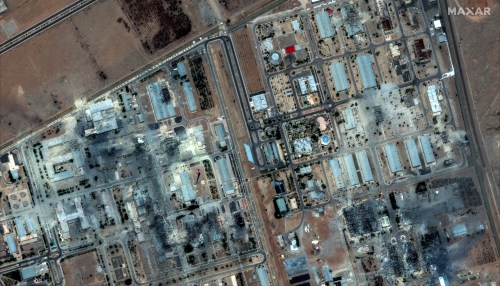




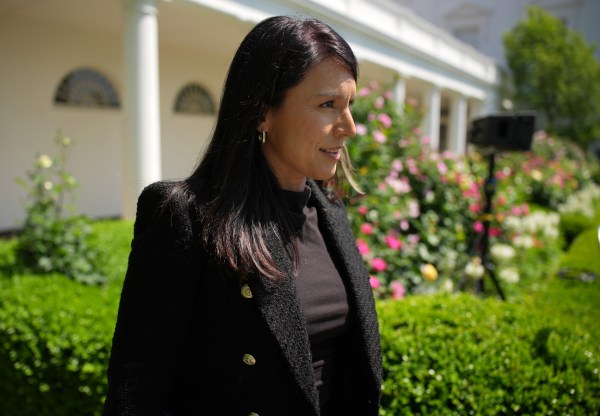
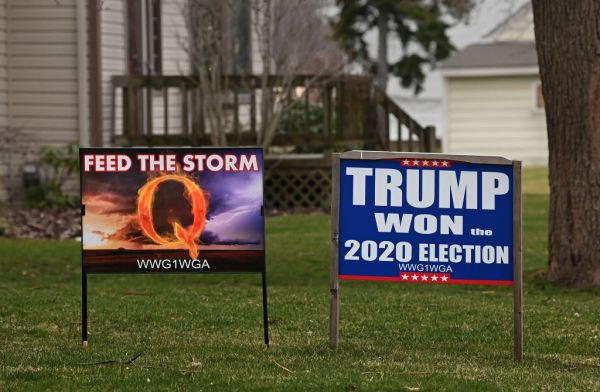
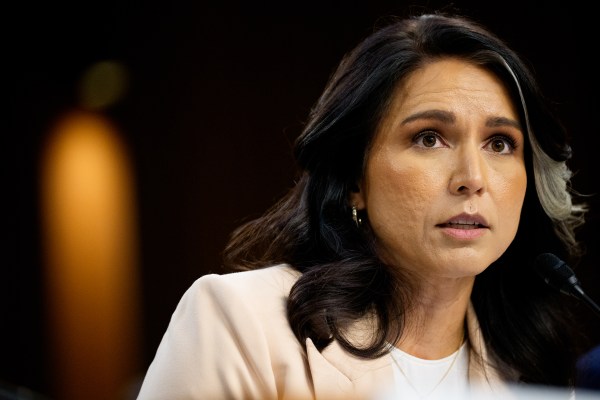

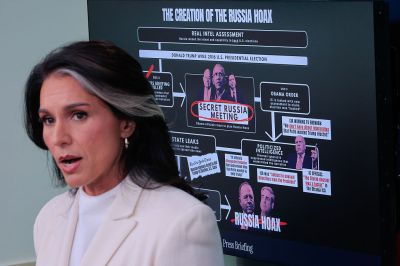
Please note that we at The Dispatch hold ourselves, our work, and our commenters to a higher standard than other places on the internet. We welcome comments that foster genuine debate or discussion—including comments critical of us or our work—but responses that include ad hominem attacks on fellow Dispatch members or are intended to stoke fear and anger may be moderated.
With your membership, you only have the ability to comment on The Morning Dispatch articles. Consider upgrading to join the conversation everywhere.